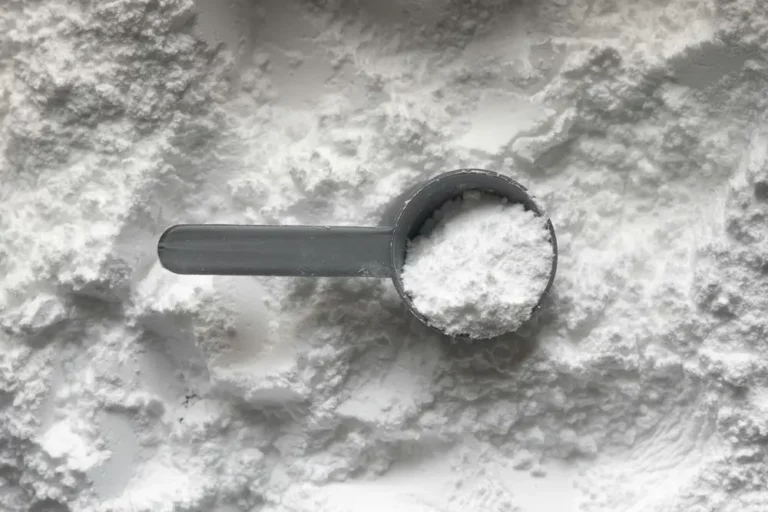Mixing Creatine with Your Protein Shake: Safe or Risky?
Ever wondered if you can mix creatine with your protein shake? You’re not alone. It’s a question that’s crossed the minds of many fitness enthusiasts, myself included. With all the different supplements on the market, it’s easy to get confused about what can and can’t be combined.
The good news is, mixing creatine and protein powder is not only safe, but it also doesn’t compromise the effectiveness of either supplement. In fact, both have their unique benefits that work together to support your fitness goals. So, if you’re looking to streamline your supplement routine, you’re in the right place. Let’s dive into the ins and outs of combining these two powerhouses.
Introduction to Creatine and Protein Supplementation
When diving deeper into the fitness world, I quickly noticed two supplements that consistently pop up in conversations: creatine and protein. They’re like the bread and butter of fitness enthusiasts, and for good reason. Each serves a unique role in the body, especially when it comes to exercising and recovering. Let’s break down what these supplements are and why they’re so beneficial.
Definition and Purpose of Creatine
Creatine, a naturally occurring compound found in muscle cells, plays a pivotal role in energy production during high-intensity, short-duration exercises. It’s synthesized from amino acids in the liver and kidneys, then transported to the muscles, where it’s stored as phosphocreatine. This process is vital because phosphocreatine is a quick energy source during activities like weight lifting or sprinting. By supplementing with creatine, the body can increase its phosphocreatine stores, allowing for better performance, increased strength, and greater muscle mass. It’s fascinating to learn that despite not being a macronutrient or having a daily recommended intake, creatine is one of the most efficient ways to boost energy for intense physical exertion.
Benefits of Protein for Muscle Recovery and Growth
On the other side, we have protein, an essential macronutrient that serves as the building block for muscle repair and growth. After a vigorous workout, our muscles are essentially broken down and need the right nutrients to rebuild stronger. That’s where protein comes in. It provides the body with amino acids necessary for muscle protein synthesis, the process of repairing and building muscle fibers. Consuming adequate amounts of protein after exercise not only aids in recovery but also supports increased muscle mass and strength gains. Whether it’s whey, soy, pea, or any other type of protein powder, incorporating this supplement into a post-workout routine can significantly enhance muscle recovery and growth, making it an indispensable part of any fitness regimen.
Combining Creatine with Protein Powder
When I first started blending my fitness journey with a more scientific approach, I stumbled upon a goldmine of improvement by combining creatine with protein powder. Let’s delve deeper into why this combination might just be the boost your workout regimen needs.
Synergistic Effects on Muscle Recovery and Growth
I’ve found that when I mix creatine with my protein shake, it seems to supercharge my muscle recovery and growth. This isn’t just luck or a placebo effect; there’s science behind it. Creatine, an organic compound that enhances energy production for high-intensity workouts, works perfectly alongside protein, the building block of muscle repair and growth. By combining these two, I’m essentially giving my muscles dual support. Protein aids in the repair and rebuild process after a workout, while creatine offers a boost in strength and power during the exercises. This synergy not only supports my muscles in becoming more resilient but also accelerates the growth process, making my goals seem a little closer after each workout.
Recommended Dosages and Mixing Instructions
When it comes to blending these supplements, I stick to the recommended dosages to optimize my results while staying safe. Here’s a quick breakdown:
| Supplement | Recommended Dosage |
|---|---|
| Creatine | 3-5 grams daily |
| Protein | 20-25 grams post-workout |
For mixing, I keep it simple. I add the recommended scoop of my protein powder to my shaker and then include the creatine dose. Mix it up with water or your beverage of choice, shake vigorously to ensure there’s no clumping, and it’s ready to drink. It’s important to use immediately after mixing to ensure that the creatine doesn’t degrade over time in liquid form.
One thing to remember is to stay hydrated. Creatine can cause some people to retain water, so I always increase my water intake to counteract any potential bloating or dehydration issues. This way, I ensure that I’m not only getting the full benefits of both supplements but doing so in a manner that keeps my body’s needs in check.
Best Practices for Mixing Creatine and Protein
When it comes to optimizing my fitness and muscle recovery, mixing creatine with protein has become a key part of my routine. It’s not just about throwing them together in a shaker; there are some best practices to ensure I’m getting the most out of both supplements.
Selecting the Right Types of Creatine and Protein
Choosing the right types of creatine and protein is crucial. With creatine, I prefer creatine monohydrate because of its extensive research backing and proven effectiveness. It’s reliable, and I know exactly what I’m getting. As for protein, I lean towards whey protein isolate post-workout due to its high protein content and fast absorption, which is perfect for muscle repair and growth.
For those with dietary restrictions or preferences, plant-based proteins mixed with creatine can still offer great results. I’ve noticed that regardless of the protein type, the synergy between protein and creatine remains strong, aiding in more efficient muscle recovery and growth.
Understanding the Importance of Liquid Choices
The choice of liquid to mix with creatine and protein is more significant than it might seem. While water is a straightforward, calorie-free option, it’s not the only choice. I’ve found that milk or a milk alternative adds a creamy texture and can contribute extra protein and calories, which is ideal for muscle building. However, it’s important to avoid anything too acidic, like some fruit juices, as it can affect the stability of creatine.
Warm liquids should generally be avoided, as high temperatures can degrade creatine’s effectiveness. I stick to cool or room temperature liquids to ensure the integrity of the supplements isn’t compromised.
By choosing compatible types of creatine and protein and pairing them with the right liquid, I can create a powerful muscle-building shake that supports my fitness goals.
Potential Benefits of Mixing Creatine with Protein
When it’s time to refuel after a grueling workout, I’ve often wondered how to maximize my recovery and gains. It turns out mixing creatine with protein may just be the tactical advantage I’m looking for. Here’s why combining these two might be a game-changer for enhancing my fitness routine.
Enhanced Muscle Recovery Post-Workout
After pushing my limits in the gym, finding the most efficient way to kickstart muscle recovery is high on my priority list. By adding creatine to my protein shake, I’m essentially hitting two birds with one stone. Protein, especially whey, is well-known for its rapid absorption and ability to supply the muscles with the amino acids they crave for repair and growth. Creatine, on the other hand, replenishes phosphocreatine stores in my muscles, which is crucial for recovering the energy system used during high-intensity activity.
This synergistic effect means not only am I refueling my muscles with the building blocks they need for growth, but I’m also rapidly recharging my muscle’s energy reserves. This one-two punch could lead to shorter recovery times and less muscle soreness. It’s like giving my muscles a much-needed energy boost while also providing the nutrients necessary for repair – all in a convenient shake.
Improved Strength and Performance
What intrigues me most about mixing creatine with protein is the potential for enhanced strength and performance over time. Creatine has been strongly linked to improvements in:
- Muscle size
- Strength output
- Power
While protein supports muscle repair and growth, creatine elevates my energy during those critical short-burst, high-intensity segments of my workout. This combination means I’m not only rebuilding my muscles more efficiently but also boosting my ability to perform at a higher level during each session.
By incorporating both creatine and protein into my post-work workout routine, I’m essentially fueling my body’s ability to work harder and recover faster. This might just be the recipe for breaking through plateaus and achieving my fitness goals quickly.
Addressing Common Concerns and Myths
When adding something new to my fitness regime, I always encourage doing your homework. There are a lot of myths out there, especially when it comes to mixing supplements like creatine and protein. Let’s dive into some of these common concerns and shed some light on them.
Debunking Misconceptions About Mixing Supplements
One of the first misconceptions I’d like to tackle is the idea that mixing creatine with protein somehow diminishes the effectiveness of one or both of the supplements. Let me set the record straight: this just isn’t true. Scientific studies have shown that the combination can actually optimize both muscle recovery and growth by ensuring the muscles are well-fueled and repaired after a workout. It’s all about how these supplements work together in harmony rather than competing against each other.
Another myth I’ve come across is the fear that taking creatine in any form can lead to dangerous side effects. In truth, creatine is one of the most researched supplements in the fitness world, and while it’s important to follow recommended dosages, it’s generally considered safe for consumption. The key is to maintain proper hydration, as most issues arise from neglecting this aspect rather than from the creatine itself.
Addressing Potential Digestive Issues
I know some might have concerns about mixing creatine with protein shakes, causing digestive distress. It’s a valid concern, given that our bodies react uniquely to various supplements. However, the occurrence of such issues is actually quite rare. Most instances of bloating or discomfort can often be attributed to either the body adjusting to the creatine or to the overall quality of the protein used.
It’s crucial to choose a high-quality protein powder and to start with a smaller dose of creatine, gradually increasing it as your body adapts. Additionally, spreading the intake throughout the day instead of consuming it all at once can help minimize any potential digestive issues. My journey has taught me that listening to my body and making adjustments based on its responses is essential in finding the perfect balance for optimal results.
Timing and Frequency of Consumption
Optimal Times to Consume Mixed Shakes
When I’m looking to get the most out of my workout supplements, timing can be as crucial as the supplements themselves. For those of us wondering about mixing creatine into our protein shakes, the timing indeed makes a difference. Post-workout is often cited as the prime time to consume this powerhouse combo. The logic is simple: after exercising, the body is in a state where it’s most receptive to nutrients. This phase, often referred to as the “anabolic window”, is when our muscles are like sponges, eager to absorb the protein for repair and the creatine to replenish energy reserves.
However, I’ve also found that taking the combo 30 minutes before a workout can provide that extra boost of energy for the session ahead. It’s like fueling up your car before a long drive; you want to make sure you’ve got enough gas to get where you’re going. By experimenting a bit, I’ve observed that my body responds well when I’m flexible with the timing, depending on the day’s workout intensity and duration.
Daily Requirements and Limitations
Understanding the daily requirements and limitations of creatine and protein is key to maximizing our fitness gains without overdoing it. Though creatine isn’t a macronutrient and lacks a daily recommended intake, there’s a general consensus among fitness enthusiasts and experts alike that 3-5 grams per day is sufficient for most individuals. This amount is considered to provide the benefits of increased phosphocreatine stores without the risk of unnecessary side effects.
On the protein front, recommendations can vary depending on body weight and activity level. A common guideline is 1.2 to 2.0 grams of protein per kilogram of body weight. For someone like me, who weighs around 70kg and engages in regular resistance training, aiming for the upper end of that spectrum helps ensure I’m repairing and building muscle effectively.
It’s also worth noting that more isn’t always better. Going overboard with protein can put unnecessary strain on the kidneys over time, while excessive creatine consumption might lead to bloating and digestive discomfort. Listening to my body and making adjustments based on its responses has been crucial. Finding that sweet spot where I’m not only meeting but also not vastly exceeding these requirements has allowed me to optimize my recovery and performance.
Special Considerations and Precautions
When integrating creatine into my fitness regimen, especially when mixing it with protein shakes, I’ve found it crucial to be mindful of a few key considerations. Adhering to these can ensure not only the effectiveness of my supplementation strategy but also safeguard my health in the process.
Monitoring Hydration and Kidney Function
One aspect I can’t stress enough is the importance of staying hydrated. Both creatine and protein powders have a pronounced impact on my body’s water requirements. Creatine, specifically, increases the need for water to ensure optimal muscle hydration and performance. I always aim to drink ample fluids throughout the day, focusing on consuming at least 8-10 glasses of water. This not only supports the creatine uptake by my muscles but also aids in preventing any potential strain on my kidneys.
Monitoring kidney function has become a part of my routine health check-ups. Given that my kidneys are responsible for filtering out excess substances from my blood, including breakdown products of protein and creatine, I want to make sure they’re not overburdened. Regular blood tests showing my creatinine levels serve as a great indicator of how well my kidneys are functioning. Keeping creatinine levels within the normal range of 0.84 to 1.21 mg/dL for males and 0.56 to 1.00 mg/dL for females is my aim to ensure my kidneys are healthy.
Allergies and Intolerances to Ingredients
Another point I pay close attention to is the risk of allergies and intolerances. Both protein powders and creatine supplements come in various forms, some of which might contain ingredients that could trigger allergic reactions or intolerances in some individuals. I always make it a point to carefully read the labels on these products to identify any potential allergens, such as gluten, dairy, or soy.
Not long ago, I realized I had a mild intolerance to lactose. This discovery led me to opt for whey protein isolate over concentrate, as the former contains less lactose. Similarly, for creatine, I prefer 100% pure micronized creatine monohydrate since it’s usually free from additives and less likely to cause a reaction. By paying close attention to these details, I’m able to enjoy the benefits of both supplements without compromising my well-being.
Consultation with Healthcare Professionals
When considering adding supplements like creatine into your protein shake, it’s wise to consult healthcare professionals. This step ensures your personal health needs and fitness goals are met safely and effectively.
When to Seek Advice from a Nutritionist or Doctor
I’ve always believed in the importance of professional advice when it comes to supplements. If you’re unsure about whether creatine, protein powder, or a combination of both is right for you, it’s time to reach out to a nutritionist or doctor. Here are a few scenarios when consulting a professional is crucial:
- You’re new to supplements: If you’re dipping your toes into the world of supplements for the first time, a nutritionist can offer personalized advice based on your dietary needs and fitness goals.
- Existing health conditions: Individuals with kidney issues or other medical conditions should seek a doctor’s advice to ensure that creatine won’t exacerbate their condition.
- You’re not seeing results: If you’ve been using creatine or protein shakes without seeing the improvements you’re hoping for, a professional can help adjust your diet and supplementation strategy.
Managing Interactions with Medications and Conditions
One of my top priorities is to ensure that any supplements I take don’t negatively interact with medications or health conditions. Here’s why consulting healthcare professionals is key in managing these potential interactions:
- Medication interactions: Some supplements can alter the effectiveness of medications or lead to unwanted side effects. A healthcare provider can guide you on how to safely incorporate creatine into your regimen without affecting your medication.
- Condition-specific considerations: Certain health conditions, such as kidney disease, may require you to limit or avoid certain supplements, including creatine. A doctor can provide guidance tailored to your health situation, ensuring your supplementation plan supports your well-being.
Navigating the world of supplements can be tricky, but with the right professional guidance, you can make informed decisions that benefit your health and fitness journey.
Conclusion
While mixing creatine into your protein shake might seem like a simple way to boost your fitness regimen, it’s not a decision to take lightly. I can’t stress enough the importance of getting professional advice to make sure you’re not only achieving your health and fitness goals but doing so in a way that’s safe and effective for your unique body. Remember, what works for someone else might not work for you. So before you go ahead and shake things up, make sure to have that chat with a healthcare professional. It’s a small step that could make a big difference in your journey to better health and fitness.
FAQ – Frequently Asked Questions
How much creatine is safe for kidneys?
For most individuals, consuming 3–5 grams of creatine daily is considered safe and can enhance performance. However, those with higher muscle mass may require up to 10 grams. Doses above 10 grams per day have not shown detrimental effects on kidney function, though long-term studies on such high doses are limited.
Can I put creatine in my smoothie?
Yes, creatine mixes well in smoothies, offering a practical and delicious way to incorporate it into your diet. Choosing a flavored creatine can also add a sweet, fruity taste, making your smoothie even more enjoyable.
What is the best way to take creatine?
Taking creatine consistently is key, whether in the morning with breakfast, as part of your pre-workout or intra-workout drink, or post-workout. The timing is less important than ensuring you take it daily to see benefits.
Does creatine cause puffy face?
Creatine may cause what is known as “the creatine bloat,” leading to facial bloating during the initial days of supplementation. This is a common and temporary effect observed by many users.
What cancels out creatine?
Caffeine has been suggested to reduce creatine’s effectiveness when consumed simultaneously. To optimize creatine’s benefits, it may be best to avoid taking it with caffeine-containing beverages or supplements.







